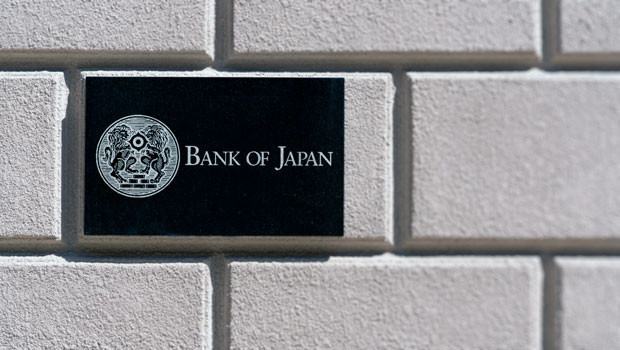Asia report: Markets rise as Japan, China central banks hold rates

Asian markets ended the trading week on a positive note, with Japan’s Nikkei leading gains after a strong performance on Wall Street.
Ratesetters in both Japan and China also made decisions on Friday, with central banks in both countries leaving interest rates unchanged.
“Investors continue to celebrate the Federal Reserve's half-point interest rate reduction on Wednesday while also evaluating the policy actions of the Bank of Japan and the Chinese central bank,” said TickMill’s Patrick Munnelly.
“China is contemplating removing some of the most severe remaining restrictions on home purchases, as previous measures have failed to stimulate a stagnant real estate market.
“Asian equities are generally higher on Friday - the Japanese market was the top performer in the region, although it has retreated from session highs.”
Munnelly said that was due to the Bank of Japan's decision to maintain its key short-term interest rate at 0.25% to 0.1%, as was anticipated.
“USD-JPY lifted as the BOJ stated there is no rush to raise rates.
“Japan's real interest rates continue to be exceptionally low.”
Most markets rise after week of central bank decisions
The Nikkei 225 rose 1.53% to close at 37,723.91, buoyed by significant gains in Resonac Holdings, Tokai Carbon, and Kawasaki Heavy Industries.
The broader Topix index also gained 0.97% to reach 2,642.35.
In China, the markets showed mixed results - the Shanghai Composite saw a marginal increase of 0.03% to 2,736.81, while the Shenzhen Component fell 0.15% to 8,075.14.
Major declines in stocks such as China Shipbuilding Industry, Jiangxi Lianchuang Opto-electronic Science & Technology, and Shanghai Diesel Engine Co weighed on Shanghai’s benchmark.
Hong Kong's Hang Seng Index performed strongly, rising 1.36% to close at 18,258.57.
WuXi AppTec and WuXi Biologics were the standout performers, with gains of 11.7% and 10.4% respectively, while Geely Automobile Holdings also saw a significant increase of 6.97%.
South Korea's Kospi index gained 0.44% to finish at 2,596.31, with Yuhan leading the charge, surging 15.86%.
Kumyang and Kogas also contributed to the positive trend, up 7.94% and 7.86%, respectively.
In Australia, the S&P/ASX 200 rose by 0.21% to close at 8,209.50.
Clarity Pharmaceuticals led the gains with a 12.21% rise, followed by Telix Pharmaceuticals and NUIX, which increased by 8.26% and 7.89% respectively.
New Zealand’s S&P/NZX 50, however, bucked the regional trend and fell 1.47% to 12,478.50.
Major decliners included Serko, which dropped 9.55%, Skellerup Holdings with a 6.3% decline, and KMD Brands down by 5.66%.
In currency markets, the dollar was last up 0.85% on the yen to trade at JPY 143.84, while it gained 0.09% against the Aussie to AUD 1.4688, and advanced 0.08% on the Kiwi, changing hands at NZD 1.6042.
Oil prices remained relatively stable, with Brent crude futures last down 0.15% on ICE at $74.77 per barrel, and the NYMEX quote for West Texas Intermediate 0.14% lower at $71.85.
Japan, China ratesetters leave interest rates unchanged
In central bank news, the Bank of Japan decided to keep its benchmark interest rate steady at approximately 0.25%, marking its highest level since 2008.
The decision came after the conclusion of a two-day policy meeting on Friday.
Japan’s core consumer price index (CPI), which excludes volatile food and energy prices, meanwhile increased 2.8% year-on-year in August, aligning with market expectations.
That represented a slight uptick from the 2.7% recorded in the prior month.
When excluding only fresh food and energy, inflation was measured at 2%, up from 1.9% in July, indicating a gradual increase in underlying price pressures.
In China, the central bank also maintained its key lending rates unchanged.
The one-year loan prime rate, which is pivotal for determining corporate and household borrowing costs, remained at 3.35%.
At the same time the five-year loan prime rate, which influences mortgage rates, was also held steady at 3.85%.
Reporting by Josh White for Sharecast.com.